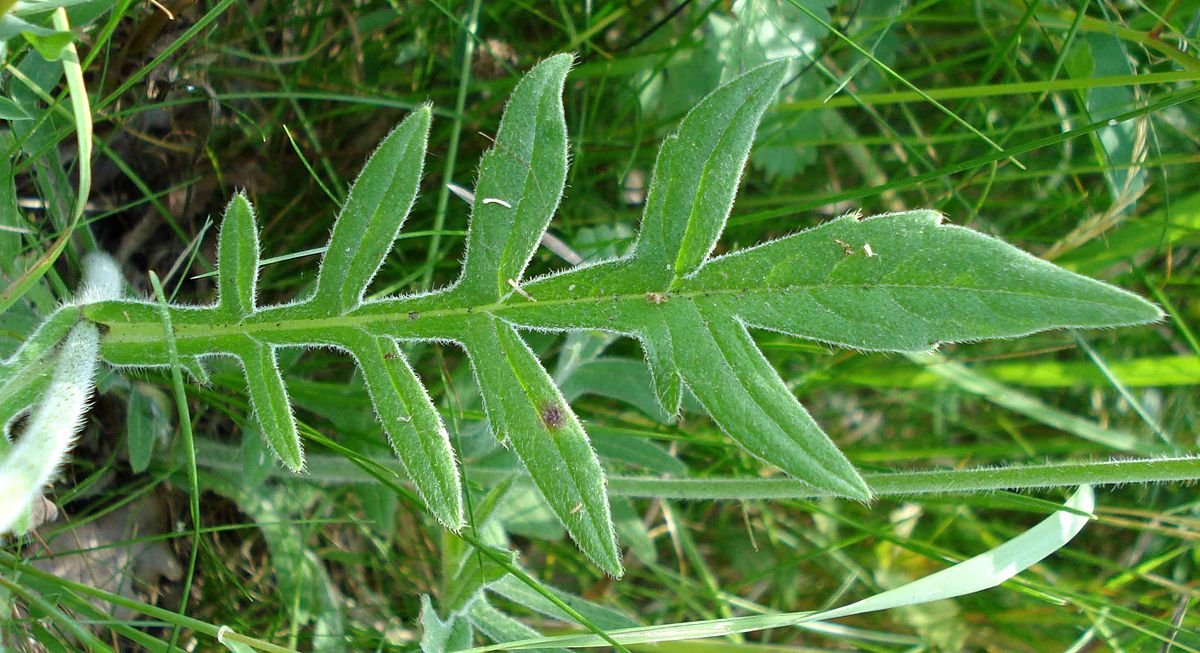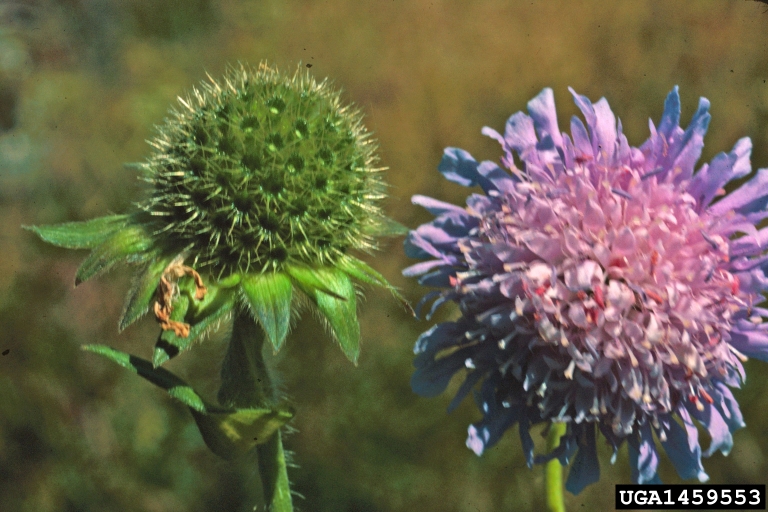Field Scabious

Field Scabious
(Knautia arvensis)
Priority: - Prevent / EDRR
Tags: Terrestrial
Identification and Reproduction
Identification:
- Field scabious is a tall perennial that grows from a deep taproot.
- Stems are erect, hairy and sparsely branched. This plant grows up to 1.5 m tall.
- Leaves are also hairy and the extent of the lobes are dependent on their life stage. As a rosette leaves are lance-shaped and pointed to a tip. After bolting, stem leaves are arranged oppositely, pinnately lobed and attached directly to the stem. Leaf size will decrease moving up the stem.
- This plant produces composite flowers that are small (4 cm) and violet-blue to purple. Bracts are narrow and bright green. Flowering occurs between July and September.
- After flowering the seedheads develop, becoming domed and covered in short hairs.
Reproduction:
- A single plant can produce up to 2,000 seeds per growing season.
Habitat & Ecology
- It thrives in nutrient-rich and moderately dry soils but has also been known to establish in gravelly soils.
- It prefers grassy areas with dry soils.
- Currently present in BC in the specific regions: Bulkley-Nechako, Kootenay-Boundary, and Thompson-Nicola regions.
Impacts
Social:
- This plant out-competes foraging and pasture plants.
- Causes decline in hay production and pasture carrying potential.
- Once established it is difficult to eradicate.
Management
Prevention is a high priority for this plant.
- Please report this plant if you think you have seen it.
Mechanical/Manual Control:
- Small, young infestations can easily be pulled by hand.
- Repeated mowing can also help deplete the taproot resources.
- Prior to flowering cultivation can be efficient.
- Be sure to wear gloves, long sleeves and pants to prevent contact with plant hairs.
Chemical Control:
- Currently picloram and metsulfuron-methyl are registered for use on field scabious.
- Please carefully read all labels prior to application.
Resources
Download A Guide to Weeds in British Columbia: Field Scabious here.
Header photo (Udo Schmidt).




